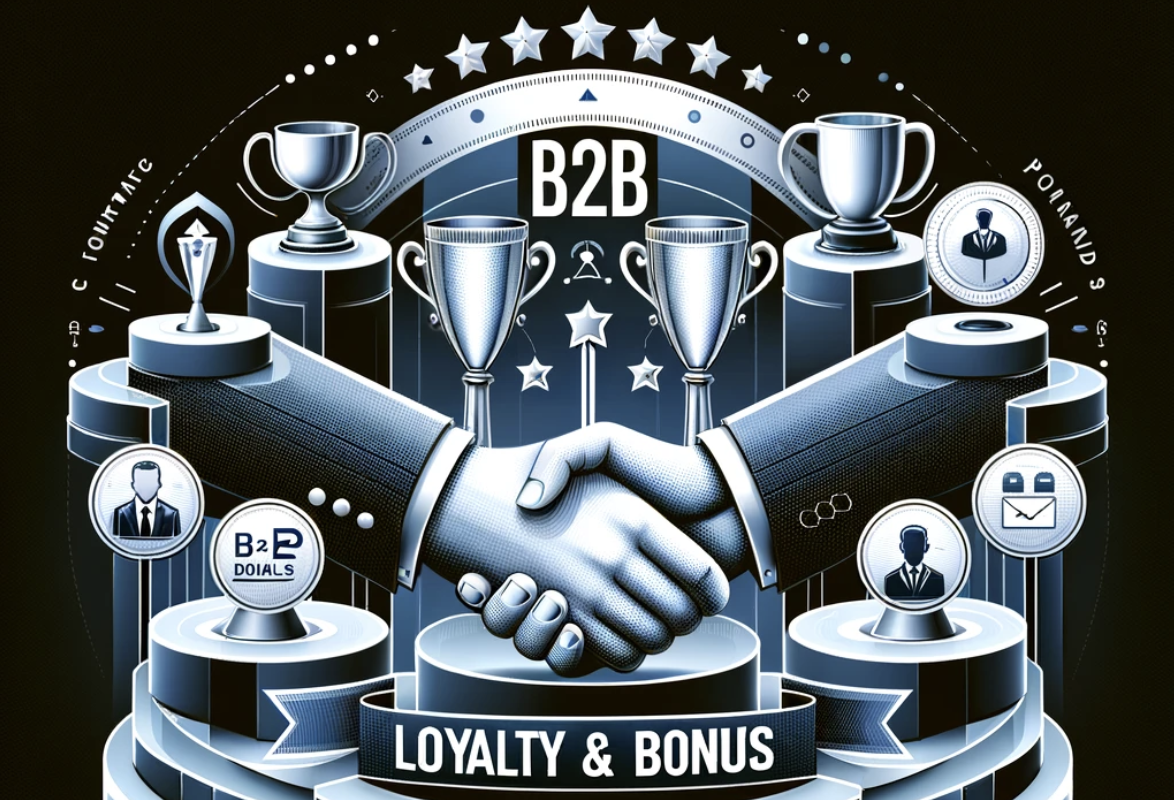Loyalty programs have become a cornerstone of marketing success, especially in the B2C sector. But what about their effectiveness in the B2B environment, where decision-making processes are often more complex, and the relationships between companies and their customers may be more long-term?
Where the boundaries between B2B and B2C are increasingly blurring, we need to reevaluate the strategies behind loyalty programs and customer retention in B2B marketing.
One thing is certain: the days when pure price or product advantages were enough to secure the loyalty of business customers are over. Digitalization has increased the availability of information and transparency in the market. Customers are better informed and have higher expectations of the brands they do business with. They are looking for partners who not only understand their immediate needs but can also provide added value to their business. In this context, personalized and value-driven loyalty programs are becoming increasingly important.
An effective B2B marketing strategy aimed at securing long-term market success must focus on building strong, emotional connections with customers. It’s not just about fostering transactions but true partnerships. A key element here is understanding that at the heart of every B2B relationship are people. Emotional bonds and recognizing individual needs and challenges can thus also provide a strong foundation for loyalty and long-term customer relationships in the B2B sector.
Moreover, it is crucial to continuously measure and optimize the effectiveness of loyalty programs. Data and analytics play an essential role in understanding the preferences and behaviors of business customers. These insights enable companies to personalize their offerings, thereby increasing customer satisfaction and loyalty.
So how do we proceed with our B2B loyalty program?
- Invest in Share of Voice to increase market share
The first principle, investing in Share of Voice (SOV), emphasizes the importance of maintaining an SOV above the Share of Market (SOM) to drive growth. This principle applies to B2B just as much as it does to B2C. Empirical studies show a strong and statistically significant correlation between market share growth and Excess Share of Voice (ESOV) for B2B brands. Loyalty programs that are well-promoted and have high media presence can contribute to a higher SOV, as they increase the visibility and attractiveness of the brand to potential and existing customers. - Balance between brand building and activation for long-term engagement
The balance between brand building and sales activation is crucial. For loyalty programs, this means not only focusing on immediate benefits or rewards that can drive short-term sales but also creating a brand story that resonates emotionally with B2B customers. This dual approach ensures that loyalty programs not only provide incentives for immediate purchases but also build a long-term emotional connection to the brand that leads to sustained engagement. - Expand your customer base beyond loyalty
While loyalty programs traditionally focus on increasing customer retention, they can also serve to acquire new customers. In B2B markets, growth primarily depends on expanding the customer base, not just increasing the loyalty of existing customers. Therefore, loyalty programs should be designed to not only reward repeat customers but also attract new ones. This can be achieved by offering referral bonuses, making the program attractive to non-customers, and using case studies or testimonials from loyal customers to attract new clients. “Refer a colleague.” - Maximize mental availability through loyalty programs
Mental availability, i.e., the likelihood that a brand comes to mind in purchasing situations, is critical to the success of B2B marketing. Loyalty programs can play a key role in increasing the mental availability of a brand by ensuring that the brand remains top of mind through regular engagement, rewards for repeat purchases, and personalized communication. By continuously reminding customers of the brand’s value proposition and benefits, loyalty programs can improve mental availability and drive long-term growth. - Leverage the power of emotions to strengthen loyalty
Finally, it has been shown that emotional messaging is more effective for long-term brand building than rational messaging, which is more suitable for short-term sales activation. In the context of loyalty programs, this means that B2B marketers should strive to evoke positive emotions through their programs, such as a sense of belonging, achievement, or recognition. Emotional engagement can be fostered through personalized rewards, exclusive experiences, or by highlighting the impact of the loyalty program on the customer’s business success.
Last but not least: The power of partnerships in B2B marketing and customer loyalty
Partnerships are an excellent strategy in B2B marketing, especially when it comes to enhancing loyalty programs. Collaborating with complementary companies or influential industry figures can significantly increase the reach and attractiveness of loyalty initiatives. These partnerships enable companies to offer a broader range of rewards and experiences, as well as core products that are tailored to the specific needs and interests of their customers. For example, a company could partner with a software provider to offer exclusive access to tools or services that improve the operational efficiency of the customer. Such partnerships not only enrich the loyalty program but also demonstrate a deep understanding and commitment to the customer’s business success. By leveraging the strengths and offerings of partner organizations, companies can create added value for their customers, fostering a stronger sense of loyalty and engagement. This synergy between companies enhances the impact of loyalty programs, making them a compelling reason for customers to continue their relationship and business with the brand in the long term. By making the success of our customers part of our mission, we also ensure our own success.
The principles of B2B marketing effectiveness provide valuable insights for designing and implementing loyalty programs that can promote long-term market success. By investing in Share of Voice, balancing brand and activation, expanding the customer base, maximizing mental availability, and leveraging the power of emotions, B2B marketers can develop loyalty programs that not only offer incentives for repeat business but also build strong, lasting brand-customer relationships.
